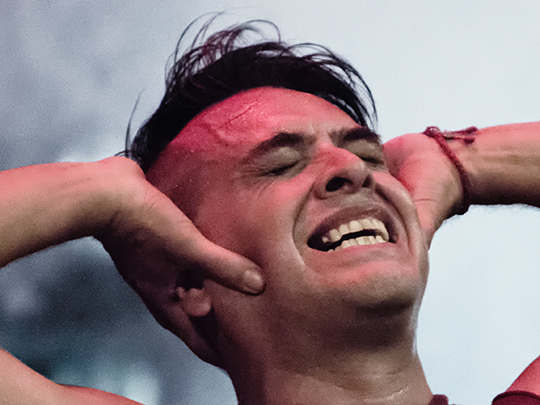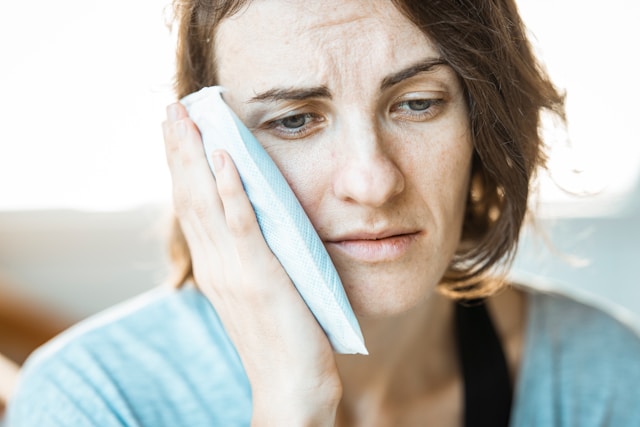
Teeth Grinding
What is Teeth Grinding?
Teeth grinding, also known as bruxism, is a common condition where patients unconsciously clench, grind, or gnash their teeth together. While it can occur during the day, it is more common during sleep, making it a type of sleep disorder. Occasional teeth grinding may not cause significant harm, but when it occurs regularly, it can lead to serious oral health problems, such as tooth damage, jaw disorders, and headaches.
Grinding can be closely related to sleep disordered breathing. Hence this is why it is important that you are actively screened for potential sleep problems prior to treatment of your teeth grinding and clenching. Bruxism can be triggered by a variety of factors, both physical and psychological. Understanding the underlying causes of teeth grinding can help guide effective treatment options.
Common treatment options include grinding mouth guards (occlusal splints), sleep disordered breathing treatment, stress management and botox to name a few.
Common Causes
- Stress and Anxiety
- Stress and anxiety are significant contributors to bruxism, particularly night-time teeth grinding. When individuals are under high levels of stress, they may subconsciously clench their jaw or grind their teeth as a way to release tension. Stress-related bruxism often occurs without the individual being aware of it, especially during sleep.
- Sleep Disorders
- Teeth grinding is often associated with sleep disorders like obstructive sleep apnoea (OSA). OSA occurs when the airway becomes temporarily blocked during sleep, leading to breathing pauses. This interruption can trigger a person to grind their teeth as the body reacts to reopen the airway. Individuals with other sleep disturbances, such as snoring or restless leg syndrome, may also be more prone to bruxism.
- Misaligned Teeth (Malocclusion)
- A misalignment of the upper and lower teeth, known as malocclusion, can contribute to bruxism. When the teeth don’t align properly, the jaw muscles may work harder to achieve a balanced bite, leading to grinding or clenching. Orthodontic issues, such as crowded teeth or an uneven bite, can make it difficult to relax the jaw.
- Medications
- Certain medications, particularly those affecting the central nervous system, can trigger bruxism. Antidepressants, antipsychotics, and some stimulant medications used to treat ADHD have been linked to an increased risk of teeth grinding. If you suspect your medication is contributing to your bruxism, it’s important to discuss this with your doctor. Read more about medications and bruxism here.
- Lifestyle Factors
- Lifestyle habits such as excessive caffeine or alcohol consumption, smoking, and recreational drug use can increase the likelihood of teeth grinding. Caffeine and alcohol, in particular, can affect sleep quality and lead to increased night-time teeth grinding.
Symptoms
- Jaw pain and headaches
- Grinding your teeth puts pressure on the jaw muscles, leading to jaw pain, tightness, or discomfort. Tension headaches, particularly in the morning, due to the strain on the jaw muscles are also a common symptom. These headaches are often described as dull, aching pain around the temples or the sides of the head.
- Tooth Sensitivity
- The constant grinding motion wears down the enamel on the teeth, making them more sensitive to hot, cold, or sweet foods. This can result in discomfort or pain while eating or drinking. We find on many cases that patient who actively grind their teeth also tend to have a much higher incidence of tooth sensitivity after dental procedures.
- Worn dentition
- Teeth grinding can cause visible wear on the teeth, including flattening, chipping, or cracking of the tooth surface. Over time, this can weaken the teeth and lead to further damage, such as tooth fractures, teeth sensitivity or even tooth loss.
Why Choose Us
- Experienced Dentist
- Our clinic provides comprehensive teeth grinding assessments, addressing both simple and complex cases. While our skilled Dentists assess each situation individually, there may be instances where referral to a Specialist is recommended for optimal care.
- Grinding is generally a sign of much more complex dental or health issue. It is absolutely important that you choose a dentist that can diagnose not just your grinding, but WHY it is happening.
- State of the art Treatments
- Using the latest technology with 3D intra-oral scanning, we are able to deliver grinding and snoring mouth guards that are thinner and more comfortable.
- Many of our cases are treated with a material known as 3D printed White Nylon - which is much more durable and thinner than your standard acrylic occlusal splint.
- Keen to see an example? Book in for a consult and you can see for yourself the advantage of switching to this revolutionary material.
- Trained in Sleep Disorders
- As many cases of teeth grinding are linked to sleep disorders, it's important that you choose a dentist that has additional training in sleep medicine.
- The use of a grinding mouth guard without proper diagnosis of a sleep disorder often leads to worsening sleep quality
Interested?
Contact us now on (03) 8899 6331 or check out our other services here.
Need help with payments?
We also have a variety of Payment Plans available - giving you the flexibility of paying for your grinding mouth guard later.

Questions about Teeth grinding options?
Is teeth grinding always harmful?
Not necessarily. Occasional teeth grinding may not cause harm, but when it becomes chronic, it can lead to serious issues like worn-down teeth, jaw pain, and headaches. Hence, if you suspect you might have bruxism, it's important to seek help immediately.
How can I tell if I grind my teeth while sleeping?
Since sleep bruxism often occurs unconsciously, you may not be aware of it. However, common signs include waking up with jaw pain, headaches, or tooth sensitivity. Your dentist may also notice signs of wear on your teeth during an exam. Occasionally, your sleep partner may notice grinding sound coming from your mouth whilst you sleep.
Can children develop bruxism?
Yes! Bruxism is relatively common in children, especially during sleep. It often occurs in response to sleep disorders, poor breathing, teething, or jaw misalignment.
Why do I need a dentist made custom made nightguard/splint?
It is tempting to buy a cheaper pharmacy boil and bite night guard but it would be preferable not to wear anything instead until you can get a proper one. A poorly fitted nightguard can cause more damage to your teeth as you grind your teeth. It can also cause permanent bite changes.


















